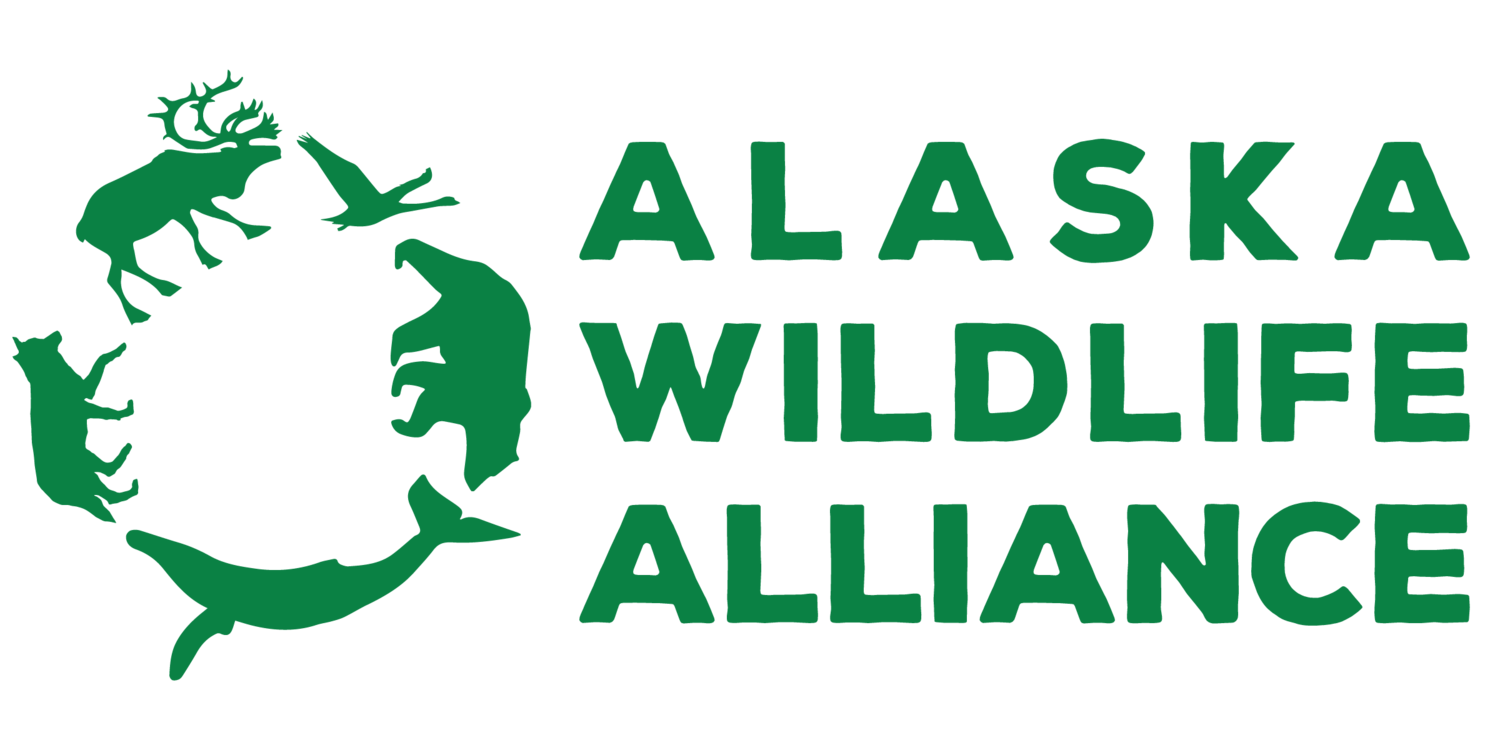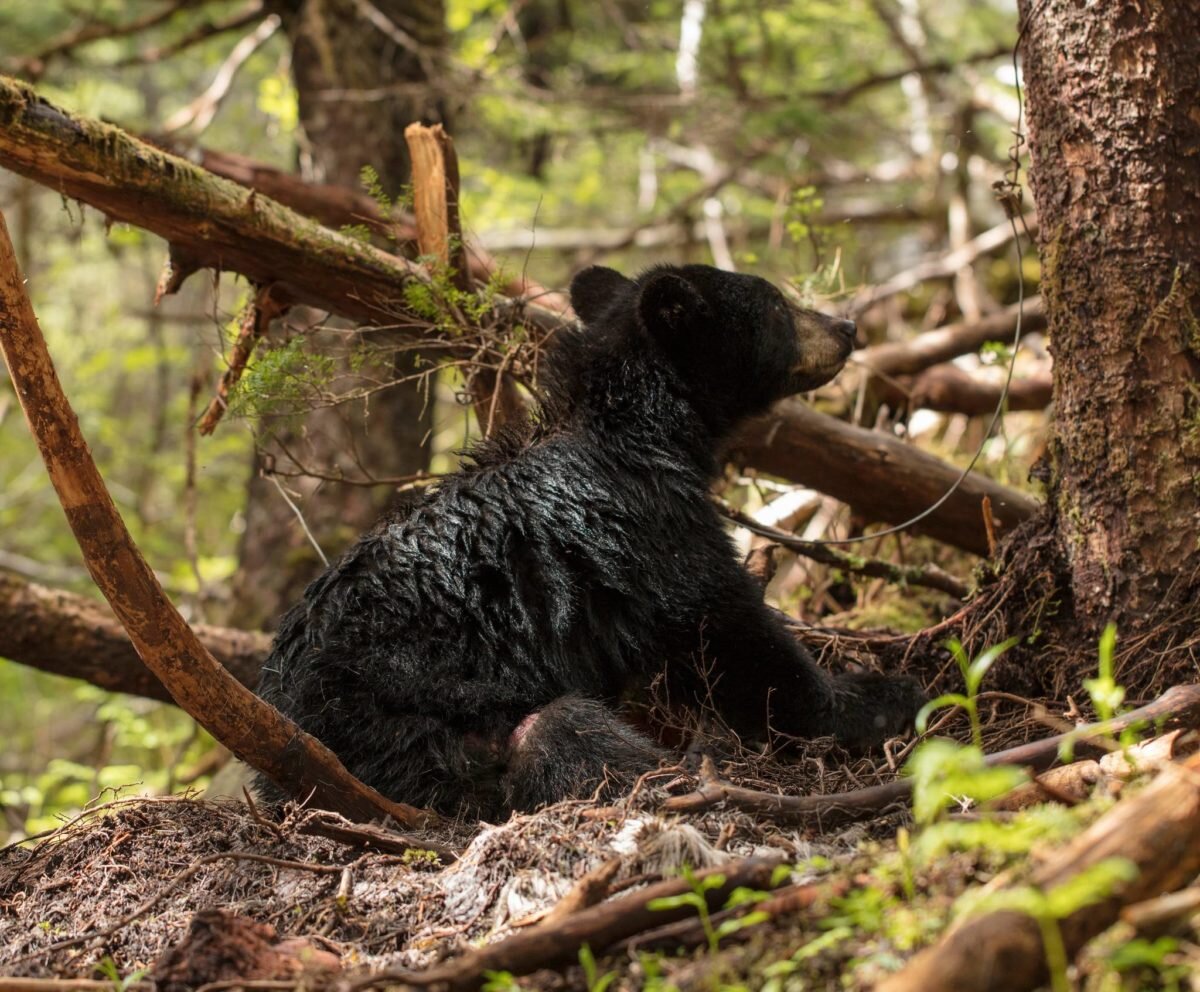We’re testifying at the Board of Game meeting, and we want you to join us.
A black bear cub euthanized by the Alaska Department of Fish and Game after it was caught in an illegal wolf snare on Douglas Island in May 2018. | Photo credit: AST
The Board of Game makes big decisions regarding who is able to hunt and trap in certain areas, as well as those hunting and trapping means, methods, and “bag limits” (number of animals permitted to be hunted). This is the most important meeting to testify on behalf of wildlife and subsistence users. Alaska Wildlife Alliance is not against hunting. We support hunting proposals that take an ecosystem approach, are representative of true subsistence needs, and follow fair-chase standards. We advocate for proposals that manage for biodiversity, not abundance. Read our position on hunting here.
Alaskan trapper demonstrates his methods
The Board of Game consists of seven members serving three-year terms. Members are appointed by the governor and confirmed by the legislature. Members are supposed to be appointed on the basis of interest in public affairs, good judgment, knowledge, and ability in the field of action of the board, with a view to providing diversity of interest and points of view in the membership (see Alaska Statute 16.05.221).
Read an overview of how regulations are made.
The Board of Game's main role is to conserve and develop Alaska's wildlife resources. This includes establishing open and closed seasons, areas for taking game, setting bag limits, and regulating methods and means. The board is also involved with setting policy and direction for the management of the state's wildlife resources. Many people think the Alaska Department of Fish and Game makes wildlife management decisions in Alaska, but that power is actually held by the politically appointed Board of Game. The board is charged with making allocative decisions, and the Department of Fish and Game is responsible for management based on those decisions. Over time, the Board has passed more and more intensive management practices & “predator controls”, and liberalized allocations and means (aerial wolf hunting, bear baiting, etc) in contrast to AWA’s principles of ethically and scientifically-founded wildlife management. To be clear, individual board members rotate off the Board and Board votes are not usually unanimous. This reflects a trend over time.
Three-Year Meeting Cycle: 2020 Interior and Arctic/Western Regions
The board meeting cycle generally occurs from October through March. The board considers changes to regulations on a region-based schedule, wherein each region is discussed on a three-year cycle.Learn more about the Board of Game proposal process.
Proposed regulations for the five regions of Alaska are considered every three years, along with all statewide regulations. This March, the Board will consider proposals in the Interior Region (GMUs 12, 19, 20, 21, 24, 25 26B, 26C). Alaska Wildlife Alliance will testify and submit comment on many of these proposals, most notably Proposal 152 to reduce the trapping season for wolves outside Denali National Park.
This is one of the most greatest opportunities to speak up for wildlife - we need you!
Read our comments on 2020 Proposals here! Join us in Fairbanks to testify between the afternoon of March 6th - the evening of March 8th. We can help you practice and write your testimony with fact sheets and tips! Email Nicole at nicole@akwildlife.org to connect.
Read and download the proposals under consideration by clicking here, or read from the embedded proposal book below.





